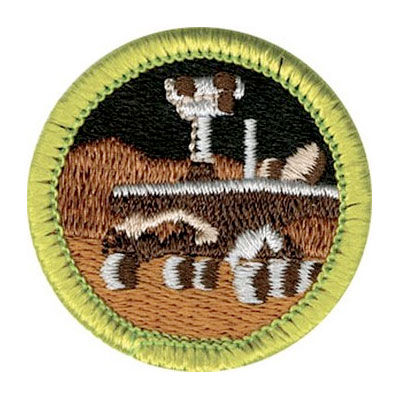Boy Scouts now have the opportunity to work with NASA and other technology professionals to design, build, and demonstrate a robot to earn the new Robotics merit badge.
NASA and BSA developed the badge because of the wide-reaching impact of robotics and its role in science, technology, engineering, and math, or STEM careers. The badge is now part of the BSA's new curriculum emphasizing STEM activities and will help young men develop critical skills relevant and needed in today's competitive world. The new merit badge is one of 31 STEM-related merit badges. Scouts will have access to engineering software and work with professional mentors worldwide to earn the badge.
"This unique partnership is another clear example of NASA looking at new and creative ways to inspire our youth to consider STEM careers," said Lyndon Bridgwater, NASA aerospace engineer and lead badge contributor from NASA's Johnson Space Center in Houston.
The badge involved approximately 14 months of development and input from 13 organizations and more than 150 BSA youth members and leaders and industry professionals from across the nation. To earn the Robotics merit badge, a scout is required to understand how robots move, sense the environment and understand how to perform an operation. Scouts will spend approximately 14 hours meeting the requirements of the badge, during which they will design a robot and demonstrate how it works. The BSA anticipates more than 10,000
Robotics merit badges will be earned the first year.
"While the guiding principles of Scouting -- service to others, leadership, personal achievement, and respect for the outdoors -- will never change, we continue to adapt programs to prepare young people for success in all areas of life," said BSA Chief Scout Executive Bob Mazzuca.












